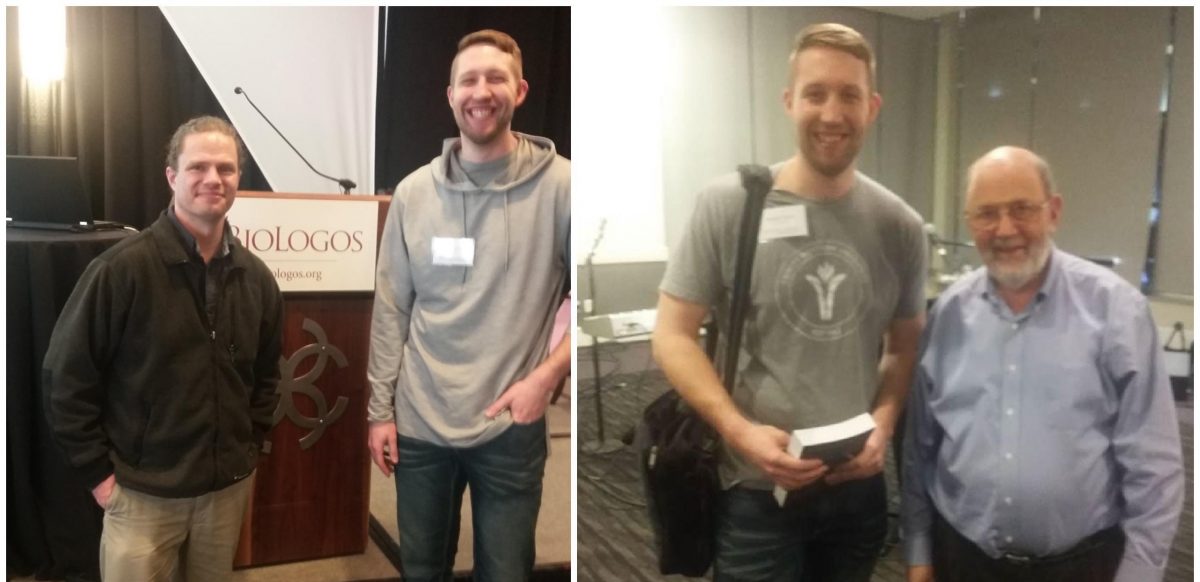Stephen Sesink attended the 2017 BioLogos Conference: Christ & Creation (March 29-31, 2017 in Houston, TX).
N.T. Wright’s lecture was quite stimulating. He argued that in order to properly comprehend creation, we must reverse the “epistemological track” of the common evangelical conception of God and creation, which tends to begin with some general conception of God and then tries “fit Jesus in. Instead, “the New Testament insists that the epistemological track runs in the other direction. It isn’t that we know who God is and then fit Jesus into that…. [Rather,] we don’t know actually that much about who or what God is–but … Jesus reveals Him” (cf. John 1:18). In evangelical interpretations of creation, there is a propensity to imagine a God who fits into a systematic, modern evangelical mold and then transpose that mold of God on to creation. In contrast, Wright advocates for an approach to creation that mirrors Jesus himself and the Kingdom of God as portrayed in the Gospels. I found this exercise to be very stimulating. To compare the nature of Jesus and his parables of the Kingdom of God with creation was an idea that I had never considered before. (Watch Wright’s lecture here.)
I also enjoyed the joint presentation by Dennis Venema and Scot McKnight. This most of all demonstrated the weaving together of theology and science in a sensitive, carefully-considered manner. The topics covered were Genetics, Evolution, Adam, Creation, and Original Sin. These are by no means easy to discuss, but Dennis and Scott demonstrated tact and academic excellence in their lectures. Dennis elucidated the science of genetics and demonstrated that the evidence runs counter to typical Protestant views on Creation and Adam; for example, there must never have been less than 10,000 hominids for a viable population with enough genetic variety to sustain the human species. Scot tackled the theological implications, unpacking the relevant ideas and demonstrating why and how they need to be reconsidered in light of both the ancient Biblical context and the conclusions of science. This combination of theology and science left an indelible impression on me. To observe a scientist and a theologian intentionally working with one another, for the benefit of the church, gave me hope for how the church can interact and pave the way for future dialogue between science and Christianity. Far from a false dichotomy between the two, BioLogos 2017 offered a synthesis enriching to both. (See Venema & McKnight’s lecture at our Vancouver chapter.)
Overall, I was impressed by the intentionality of BioLogos to interweave science and theology together, and I found fellowship with other believers committed to the pursuit of God through theology and science to be particularly enriching. These conversations reminded me of how vital it is for the church to engage in matters of science and how important it is for those in pastoral ministry to set an example. Partnership between theology and science should be encouraged within the church; as one trained in theology–and as one who wishes to serve as a pastor–I have found that this opportunity is rarely afforded.
I hope to propagate interaction between science and theology in a respectful, charitable, and academic manner. When done with respect and charity, it serves as a witness to the church and the world. For if we in the church are not willing to come to the table about such matters, then our seat will be filled by another. BioLogos is setting the table and creating a place for these interactions to take place.
I wish to thank CSCA for the wonderful opportunity afforded me to attend the BioLogos 2017 conference.
Stephen earned earned his Bachelor of Arts in Theology (Pastoral Studies) at Vanguard College in Edmonton, Alberta, and he has served as a pastor in the Pentecostal Assemblies of Canada. He is currently working towards a Master of Divinity at ACTS Seminaries (Trinity Western University), and he plans to either continue in pastoral work or pursue further studies. Stephen regularly participates in events at our CSCA Vancouver Local Chapter.
For 2016-2018, the CSCA is offering five scholarships per year (up to $1600 each) to send Canadian students to science-religion conferences of their choosing. Please click here for more information about our scholarships.
